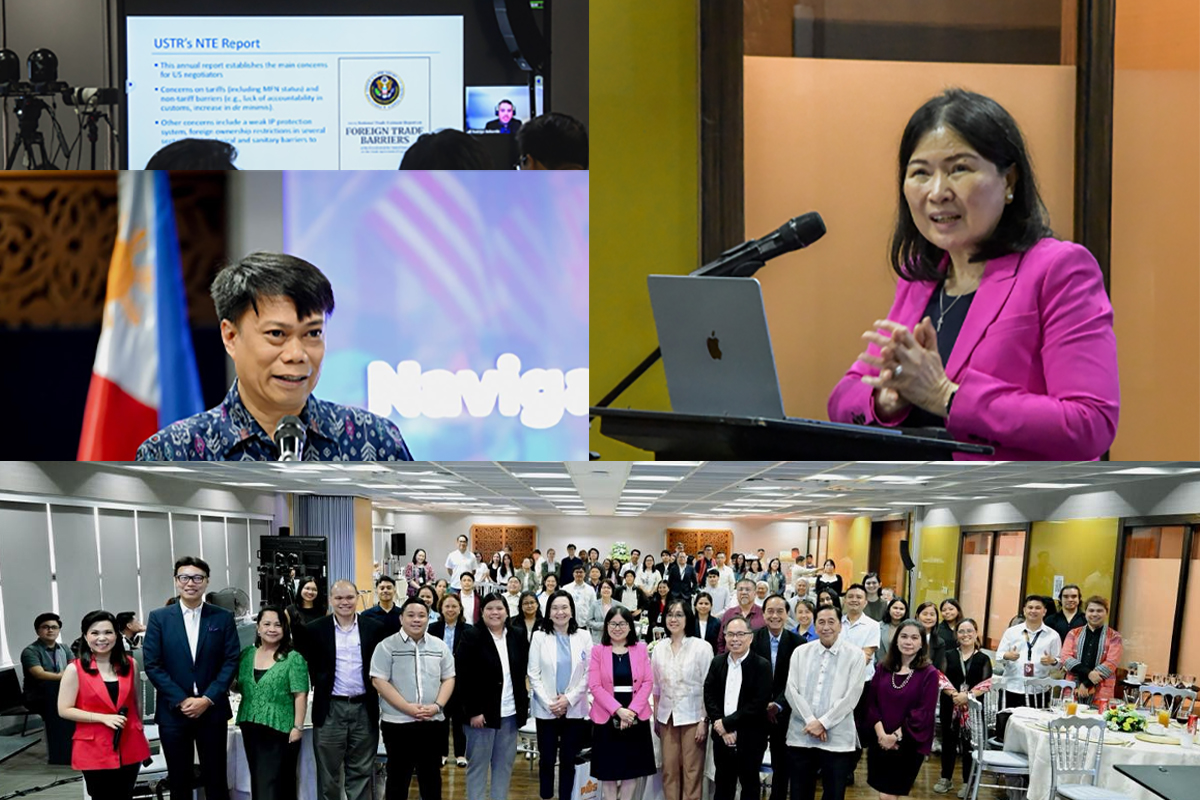THE Philippines’s accession to the World Trade Organization’s (WTO) Agreement on Government Procurement (GPA) and strengthening copyright enforcement are deemed to be “imperative,” as the country is poised for digital-trade integration with its Asia-Pacific neighbors, according to the Philippine Institute for Development Studies’ (PIDS) discussion paper.
In a news statement last Friday, Philippine Exporters Confederation Inc. (Philexport) said “PIDS Supervising Research Specialist Neil Irwin Moreno and Senior Research Fellow Francis Mark Quimba examined some notable low-hanging fruits that can be quickly adopted by the government, [as the country fully prepares] for regional integration.”
According to Philexport, Moreno and Quimba said it could be an “ideal time” for the Philippines to accede to the GPA, with the country becoming an observer and the GPA 2012 replacing the GPA 1994.
Signed on April 15,1994 and entered into force on January 1, 1996, the WTO-GPA is a multilateral agreement that aims to mutually open government-procurement markets among its parties by gradually reducing and eliminating discriminatory measures.
In June 2019 Philexport said the Philippines became an observer in the GPA. This, Philexport noted, enabled the country to participate in the discussions of the committee in drafting the framework for the conduct of international trade in government procurement without any commitments.
The two researchers cited a possible advantage of the Philippines’s accession to the GPA. Such, they noted, could be used as an avenue to pursue more free-trade agreements (FTAs) with countries that are parties to the pact.
“Many of the GPA parties do not have a trade agreement with the Philippines, which could make [its] accession complementary to the existing FTAs of the country,” the research fellows averred.
They also noted the importance to assess the issues discouraging the country from joining the GPA—most especially, the protection of domestic industries.
“Since the [agreement does not compel parties to cover all industries, the Philippines could identify the sectors which] can be fully covered by the GPA provisions, and those that need greater protection from foreign competition,” they added.
The authors also cited the importance of strengthening copyright enforcement.
Moreno and Quimba underscored studies that note the prevalence of illegal online activities which still decrease the sales of legal content. These, they said, discourage creators in the creatives sector to invest in making quality products, thereby “hampering the industry’s growth in the long run.”
“Moreover, a high level of piracy has serious implications on the country’s cyber security,” they researchers said. “Thus, stronger copyright enforcement is important for consumers to perceive that patronizing pirated content is risky and inconvenient. This could be complemented by programs that provide additional legal means for creators to promote their projects.”
The authors also found the importance of revising the conditions of data-retention requirements, and providing additional channels for promoting legal content to facilitate digital trade, Philexport said.
Citing findings of an earlier study, the researchers said it is advisable for the government to modify the conditions of the policies, rather than lifting them altogether.
“For instance, the government might consider shortening the required period of data retention, or changing the retention condition from minimum to maximum,” Moreno and Quimba added. “This way, firms would [be freed from unneeded] storage of data.”
Parties bound by the GPA 2012 include Armenia, Australia, Canada, the European Union with regard to its 27 member-states, Hong Kong, Iceland, Israel, Japan, South Korea, Liechtenstein, Moldova, Montenegro, the Netherlands with respect to Aruba, New Zealand, Norway, Singapore, Switzerland, Taiwan, Ukraine, United Kingdom, and the United States.
According to the WTO, some of the “important” benefits for the parties to the GPA, their entities and suppliers include potential trade gains based on legally assured access to the covered foreign procurement markets; keeping markets open in times of crisis where the temptation for protectionism rises; and improved public, supplier and investor confidence in the government procurement system “potentially stimulating inbound foreign-direct investment,” among others.












